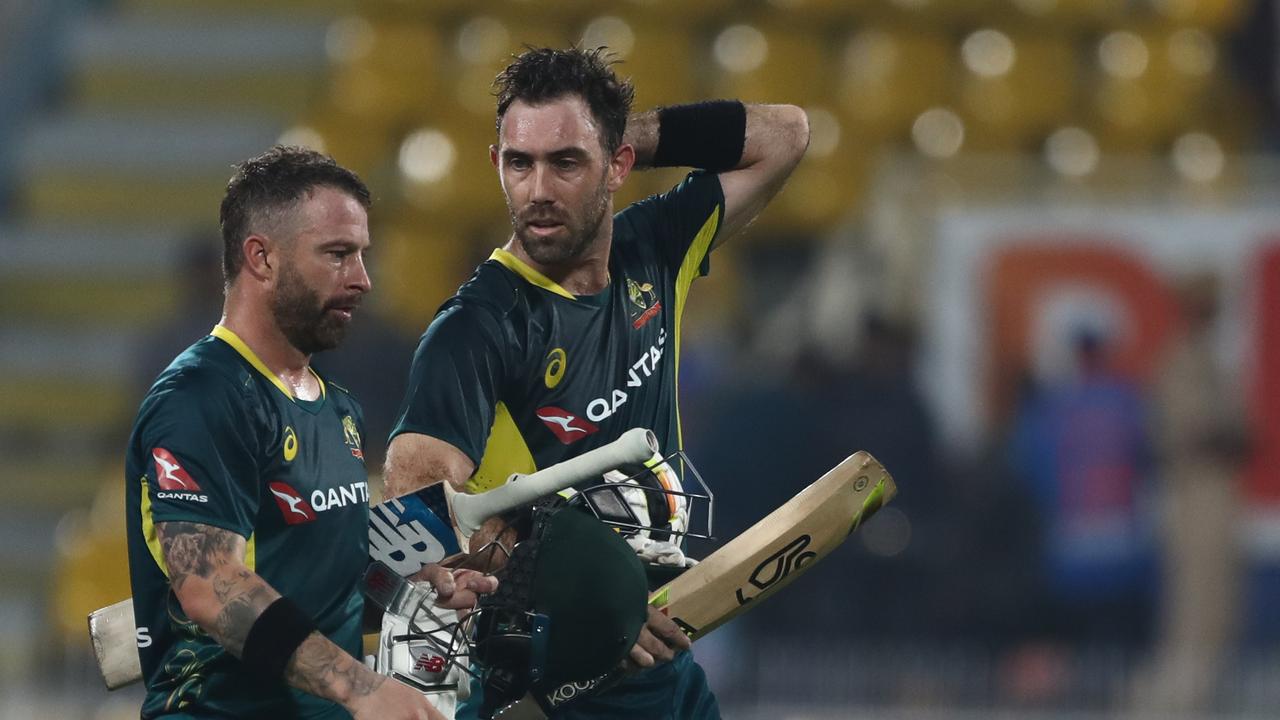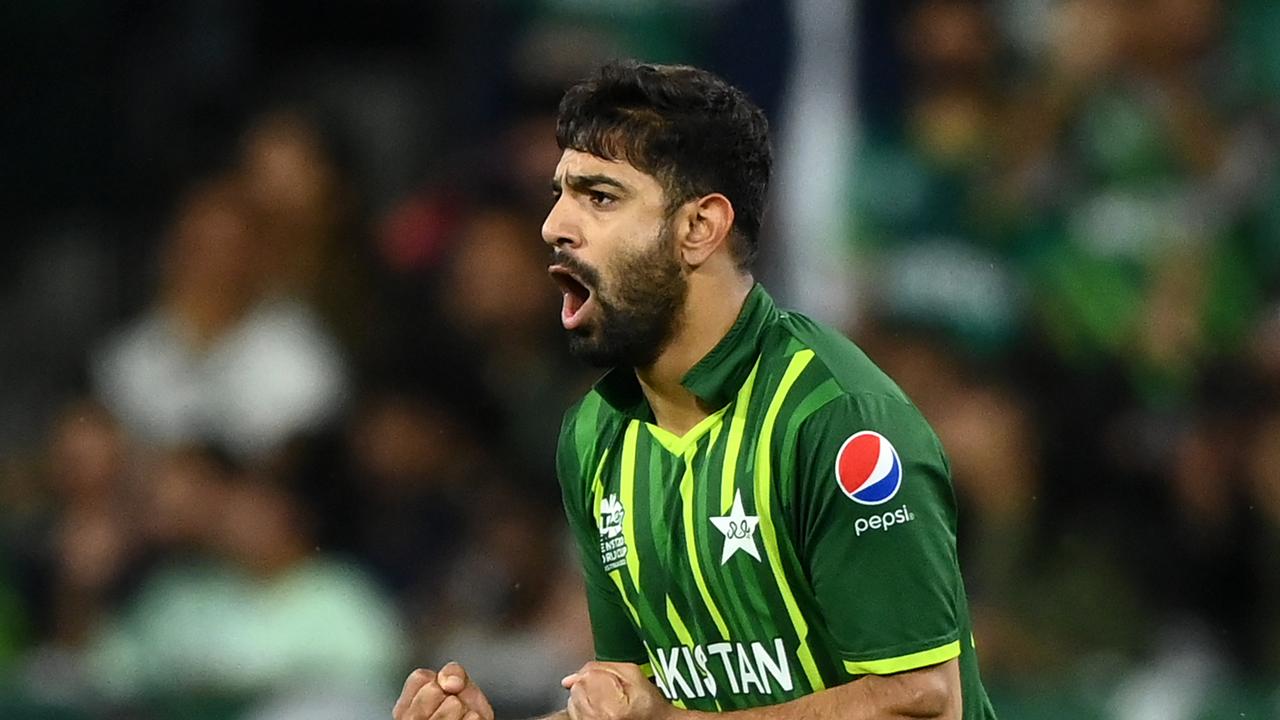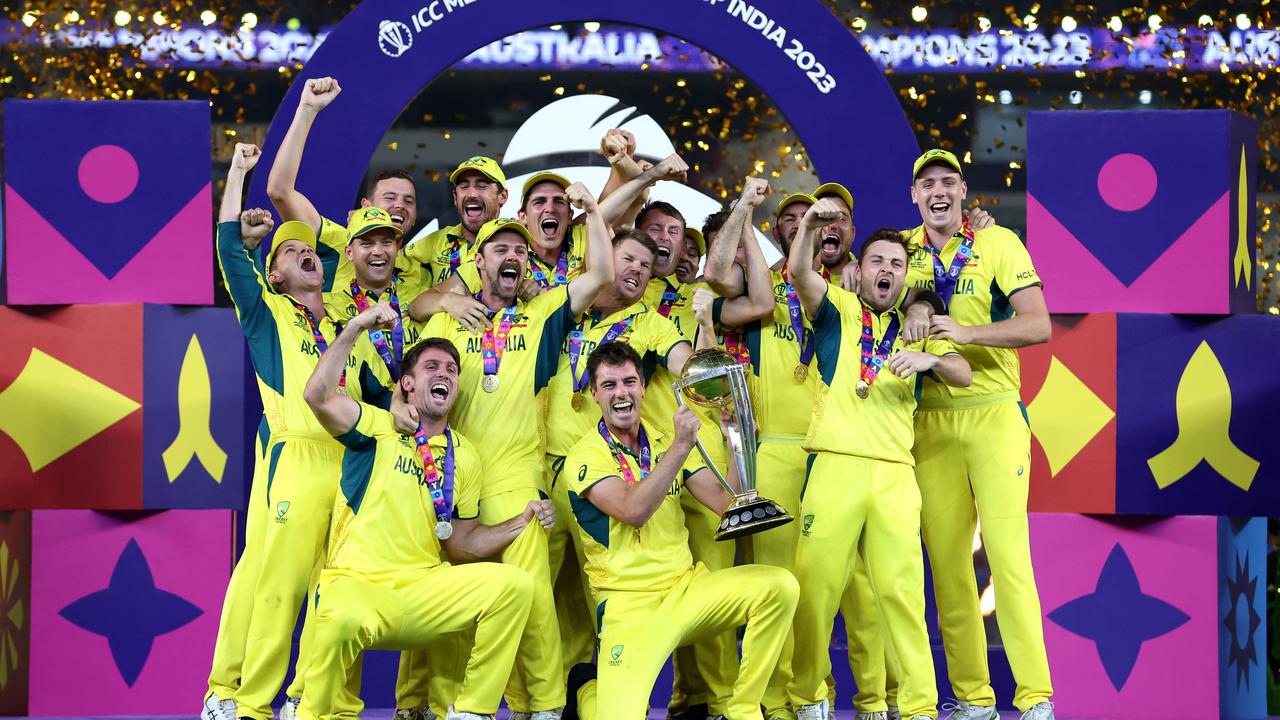Pakistan’s Haris Rauf choses BBL over Tests as cricket farce exposed
A historic Glenn Maxwell innings and a call by a Pakistani quick have exposed a major issue in world cricket that must be addressed.
It may be just over a week after one of the greatest World Cups in history but cricket is already back to being its own worst enemy.
Glenn Maxwell hit one of the great T20I hundreds against India in the third match of a five-match series that started just four days after the end of the World Cup.
And it’s a series that means next to nothing.
Watch India v Australia on Kayo Sports. Every T20 Live with no ad breaks during play. Join Kayo now and start streaming instantly >
After the match, only Travis Head will remain from Australia’s 15-man squad at the World Cup as the likes of Maxwell, Steve Smith, Marcus Stoinis, Sean Abbott, Adam Zampa and Josh Inglis head home.
Similarly, in India’s squad for the last match, only Suryakumar Yadav was left from the World Cup final.
It’s very much the nations’ B-sides with only rankings points seemingly on the line.
Honestly, who could blame the world champion Aussies from heading home, particularly when the summer’s first Test against Pakistan starts 10 days after the final T20I.

And in a sign of things to come amid cricket’s relentless schedule, Pakistan quick Haris Rauf has withdrawn himself from consideration from the upcoming Test series against the Aussies, instead preferring to play in the Big Bash League for the Melbourne Stars.
Pakistan chief selector Wahab Riaz said Rauf had pulled out of Pakistan’s 18-man squad due to fitness and workload concerns, despite promising the quick he would only need to bowl a handful of overs a day and be used as an impact bowler.
However, ESPNcricinfo reported that Rauf had denied he had made himself available in the first place and just reconfirmed his unavailability.
Rauf has featured in just one Test match for Pakistan, playing England in Rawalpindi in December 2022, where he took 1/78 in the first innings before stepping on a ball and injuring his quad.
Pakistan team director Mohammad Hafeez slammed Rauf for his decision.
“If an individual thinks he doesn’t want to play red-ball cricket, that is an individual act,” he said.
“The central contract was given on the basis that all players will be available for all formats if we need them. In the Haris Rauf case, he has shown unavailability for red-ball cricket, so with central contracts any decision will be taken keeping Pakistan’s FTP commitments in mind and that is how it will be decided who we give what contracts to in what category.
“First of all, the priority is Pakistan representation. After that comes everything else. All centrally contracted and domestic contracted players, for all of them the priority is Pakistan.”
However, the decision has further exposed what is arguably cricket’s biggest issue.
With three formats of the game played at international level and an ever-growing number of increasingly lucrative franchise tournaments emerging around the world, the scheduling has becoming a minefield as cricketers try to juggle their workloads but also set themselves up for the rest of their lives.

Federation of International Cricketers’ Associations (FICA) CEO Tom Moffat told SEN that the scheduling is proving a major problem for cricket.
“This is definitely one of the biggest issues that the game needs to resolve. The best players in the world can’t be everywhere at once,” Moffat said.
“The reality is players, like all of us, are always going to make decisions based on what’s right for themselves and their families, and that may mean gravitating more and more towards where the most lucrative offers are.
“We know, for example, in countries outside of the biggest three cricket-playing countries, the average earnings for an international cricketer are around half what those players can earn if they go and play in three of the bigger domestic leagues. In those leagues they’d be playing for a significantly smaller amount of time per year.
“We know that players love playing for their countries. We love international cricket and we want to protect it, but those are the reasons why we think if everything keeps on being scheduled on top of everything without a real coherent structure bringing those two landscapes together there’s going to be one winner ultimately and we don’t want to see that.”
Moffat added that there could be a symbiotic relationship between international and domestic cricket to help both remain strong.
“The concept of (scheduling) windows is one that we’ve talked about a lot and that’s easier said than done and there’s a lot to unpack with cricket’s global schedule,” Moffat said.
This may be best shown by Australia’s T20 series in India.
While the matches have been high-scoring and entertaining on paper, Aussie legend Michael Hussey told SEN that it “devalued” the current series to wedge it in what is already a packed schedule.

For example, Australia plays Pakistan in a three-match Test series and the West Indies in a two-match Test series, three ODIs and three T20s, before travelling to New Zealand for a three match T20 series followed by two Tests all by March 12.
In the same time, India travels to South Africa for a three-T20s starting seven days after the final T20 against Australia, followed by three ODIs and two Tests, three-T20s against Afghanistan, and five Tests against England in India — the final day of the fifth Test scheduled for March 11.
After that, the IPL begins on March 23.
“It doesn’t cheapen the World Cup but it certainly cheapens this series,” Hussey told SEN.
“There would be a number of guys who were at the World Cup (for both nations) would probably be in their T20 teams.
“They got home to either prepare for a Test series or simply to have a break.
“It’s just amazing how much (cricket boards) pack on a calendar to play so much cricket.
“It is physically and mentally impossible to play all of the tournaments that are going on.
“This is certainly not the best Australian T20 team going up against the best India T20 team.”






